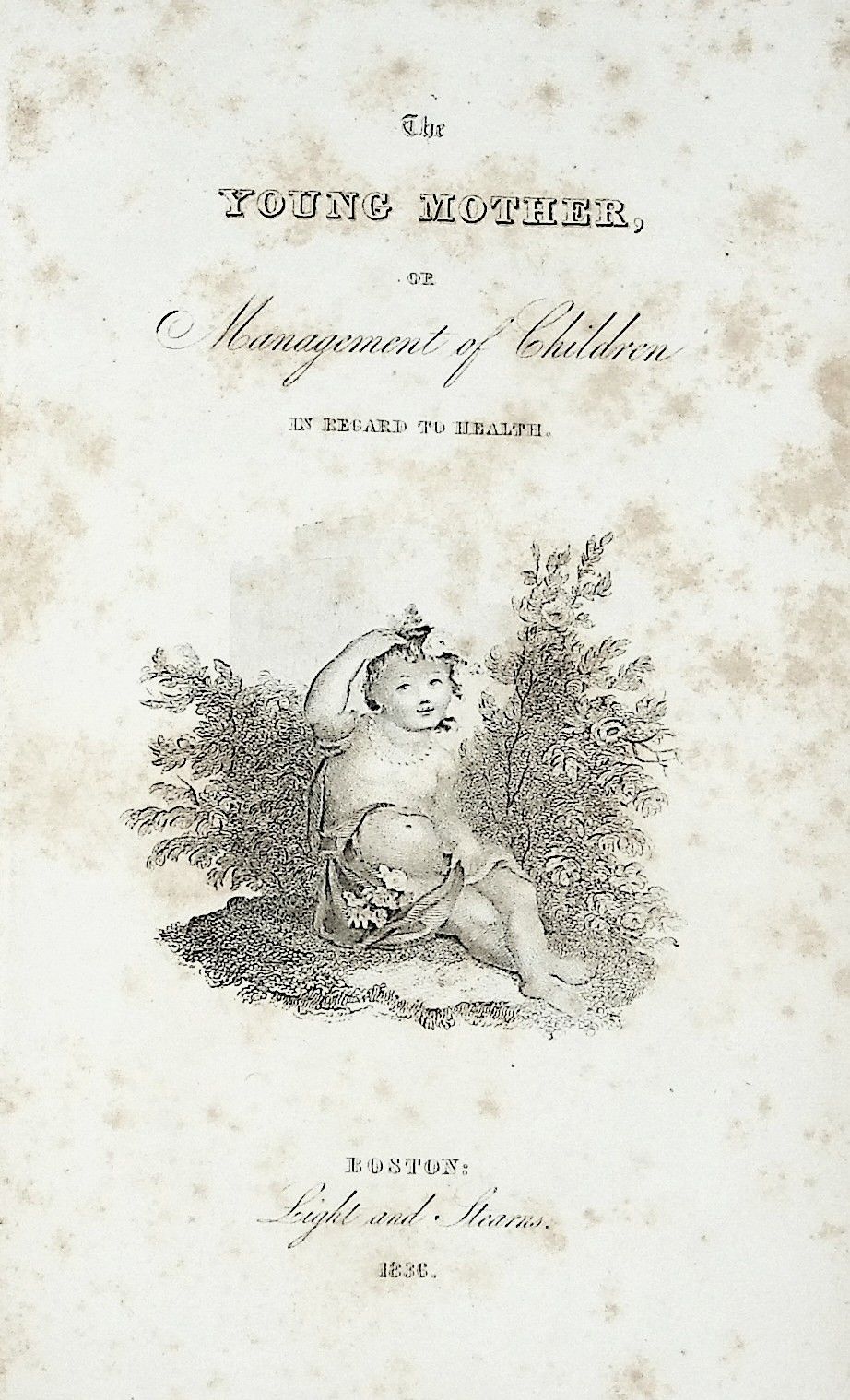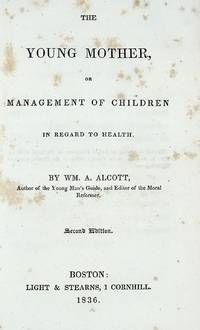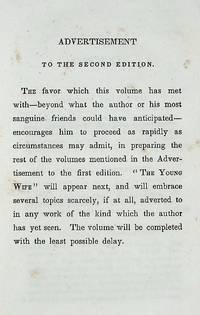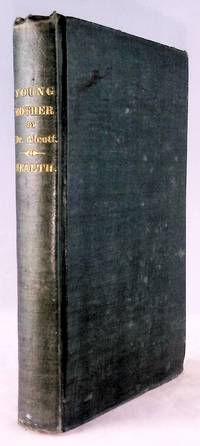The Young Mother, or Management of Children in Regard to Health
- SIGNED Cloth binding
- Boston: Light and Stearns, 1836
Boston: Light and Stearns, 1836. Second edition.
1836 ADVICE ON CHILD HEALTH FOR YOUNG MOTHERS BY A PHYSICIAN AUTHOR OF THE YOUNG MAN'S GUIDE.
7 inches tall hardcover, green cloth binding, gilt title to spine, engraved title page, 336 pp. Rippling to cloth covers, light foxing throughout, binding tight. Very good minus in custom archival mylar cover.
WILLIAM ANDRUS ALCOTT (1798 – 1859), also known as William Alexander Alcott and second cousin to Louisa May Alcott, was an American educator, physician, and author of many books. His works, which include a wide range of topics including educational reform, physical education, school house design, family life, and diet, are still widely cited today. At the age of 18 Alcott began teaching in a school, and he would continue to teach for the next nine years. He began studying medicine, with the thought that the extra knowledge would aid his teaching. His formal study of medicine was brief. In the winter of 1825–26 he attended "a regular course of medical studies" in New Haven, Connecticut. In March 1826 he was granted a license to practice medicine. In addition to teaching, he practiced medicine at least until 1829. While still teaching he had begun to contribute articles to newspapers and started work on the book that would become The Young Man's Guide. Alcott became one of the most prolific authors in early American history. He wrote frequently on the topics of education and health. In 1836, he wrote a letter defending Grahamism to the editor of the Boston Medical and Surgical Journal. He was the editor of the vegetarian Library of Health journal.[30] In 1840, the Moral Reformer and The Graham Journal of Health and Longevity were merged in the Library of Health. Alcott and Sylvester Graham founded the American Society of Physiology in 1837, with the purpose of "integrating a Grahamite lifestyle into a larger physiologically focused ideology." The Preface to The Young Mother contains many elements of Alcott's promotion of a strict vegetarian diet and austere lifestyle.
1836 ADVICE ON CHILD HEALTH FOR YOUNG MOTHERS BY A PHYSICIAN AUTHOR OF THE YOUNG MAN'S GUIDE.
7 inches tall hardcover, green cloth binding, gilt title to spine, engraved title page, 336 pp. Rippling to cloth covers, light foxing throughout, binding tight. Very good minus in custom archival mylar cover.
WILLIAM ANDRUS ALCOTT (1798 – 1859), also known as William Alexander Alcott and second cousin to Louisa May Alcott, was an American educator, physician, and author of many books. His works, which include a wide range of topics including educational reform, physical education, school house design, family life, and diet, are still widely cited today. At the age of 18 Alcott began teaching in a school, and he would continue to teach for the next nine years. He began studying medicine, with the thought that the extra knowledge would aid his teaching. His formal study of medicine was brief. In the winter of 1825–26 he attended "a regular course of medical studies" in New Haven, Connecticut. In March 1826 he was granted a license to practice medicine. In addition to teaching, he practiced medicine at least until 1829. While still teaching he had begun to contribute articles to newspapers and started work on the book that would become The Young Man's Guide. Alcott became one of the most prolific authors in early American history. He wrote frequently on the topics of education and health. In 1836, he wrote a letter defending Grahamism to the editor of the Boston Medical and Surgical Journal. He was the editor of the vegetarian Library of Health journal.[30] In 1840, the Moral Reformer and The Graham Journal of Health and Longevity were merged in the Library of Health. Alcott and Sylvester Graham founded the American Society of Physiology in 1837, with the purpose of "integrating a Grahamite lifestyle into a larger physiologically focused ideology." The Preface to The Young Mother contains many elements of Alcott's promotion of a strict vegetarian diet and austere lifestyle.





